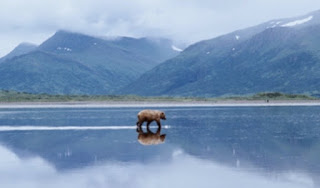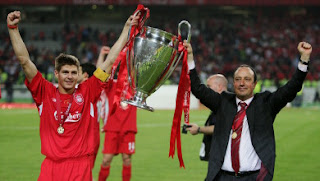Voyages in isolation
Travelling through the literature of quarantine
“It was the best of times, it was the worst of times ... we had everything before us, we had nothing before us”
- Tale of Two Cities, Charles Dickens
Staying home has given some of us new freedoms, paradoxically.
People at my work are saying, on our optional fifteen-minute-twice-weekly-08:45-virtual-coffee check-ins, that they feel more connected, not less, to our practice and our people than ever before.
Enforced monasticism can give us some unintended benefits. A time for reflection. A time to focus on the necessary, and to disregard the superfluous. Some people are alone. Not everyone endures the slings and arrows of the family rollercoaster. Some have other crosses to bear.
But one thing is certain: no one cares about your great career, salary, promotion prospects, or your fancy clothes. Equally, our lack of these also seems, in the scheme of things, tolerable. But we do now care about eggs and flour and hygiene and walks in the park. At last, our priorities seem like they are heading for a correction, towards something more appropriate.
Great literature is full of stories about isolation and enforced quarantine. Extreme experiences that forge new strength and resilience. Like the novel Robinson Crusoe, by Daniel Defoe, with its desert island naturalism, we are drawn in to fables about what humans do when confronted with loneliness and extreme natural hardship. Having a ‘community’ helps us massively, as Crusoe’s new companion, whom he called Friday, proved.
Symbols and exercises in power come to the foreground. In William Golding’s ‘Lord of the Flies’, some schoolboys are shipwrecked and learn how society develops in an isolated environment. Their base nature quickly manifests itself. The Conch is a large shell that becomes the key motif in the story. It gives authority to whoever holds it. You are only allowed to speak when you have the Conch. Cruelty ensues. As does dignity, loyalty and duty. Man as savage and angel, pusher and preacher.
Metaphor also plays a significant part in master story telling. Albert Camus wrote ‘The Plague’ in 1947 about the town of Oran in Algeria, infested with vermin. It is an allegorical take on the Nazi occupation during World War II, and how the French Resistance organised itself to fight it. La Peste, its original title, represents how the world deals with the “Absurd”. Something we need to learn today.
Literature helps us understand the sigh of the oppressed creature, the heart of a heartless world, and the soul of soulless conditions. This can be comforting in lockdown. I hear more talk these days of books, with reading recommendations and suggested lists. Books and Netflix, both.
Franz Kafka’s Metamorphosis takes us on an interior monologue, when: “As Gregor Samsa awoke one morning from uneasy dreams he found himself transformed in his bed into an enormous insect.” Clearly no chance of getting to work that day. We are like Gregor, scurrying around our sheltered homes, looking for sustenance in every corner. But in the affluent West, it’s more likely to be sweets and sugars and chocolates and creams. In between meals. Like Gregor, we first had to learn to walk in our unfamiliar conditions.
In 1974, the renowned German film-maker Werner Herzog heard that his friend Lotte Eisner, the historian, was unwell. He decided that, if he walked to visit her, she would survive.
So he did. He walked 800km from Munich to Paris. It took him three lonely weeks. The book ‘Of Walking in Ice’, tells this story like a religious analogy; the imitation of Christ by means of pilgrimage. Herzog himself would endure physical suffering so that Eisner might live. And she did; for another nine years after his fateful journey.
It is very normal these days, and encouraged, for people to practice and talk about “Mindfulness”. I welcome it. I practice it. But mindfulness came into our language in the West in the late 1970s. For 5,000 years before that, it was simply known as “Prayer”. That’s not a word that I hear a lot about in the Harvard Business Review.
Perhaps it’s the Eastern aspects of spirituality that have been infused into our inheritance of soul cleansing, to turn us towards meditation. And I find that a healthy and a good thing.
But as Kofi Annan, the former Secretary General of the UN once said, “One must never underestimate the power of prayer”. It is suddenly natural to talk of these things in the science fiction world we are in today.
In George Orwell’s Nineteen Eighty-Four, citizens are monitored and controlled. The language of the state mimics our current news media. Words that appeared futuristic to Orwell’s readers - newspeak, double-think, crime-think - are now part of our normal world today. You only have to look at the legendary gem of a phrase “alternative facts”, which was coined in a White House press briefing. “Ignorance is strength” is a scary Orwell phrase that some leaders wear as a badge of honour today.
Language wins elections for presidents, and language can win you love. Good books and the calm discipline of reading give us an imaginative leap. They help us make sense of our circumstances. And more importantly, they give us the language to express ourselves, the articulation to shine a light on our outrageous fortune. And maybe by opposing this sea of troubles, eventually we can end them.
The last word to Constantine Cavafy, who reminds us in his Ιθάκη (1911) that our road is more often about mental strength and spiritual persistence, than it is about physical endurance.
“Αλλά μη βιάζεις το ταξίδι διόλου,
πλούσιος με όσα κέρδισες στον δρόμο”
But don’t hurry the journey at all,
wealthy with all you’ve gained along the way - Ithaca.
James Neophytou



Comments